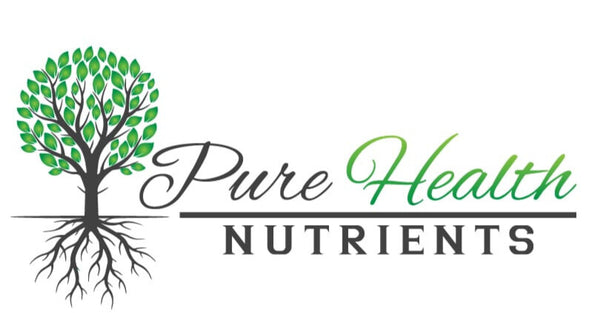Introduction
Vitamin D and Vitamin K2 are crucial for maintaining optimal health. While Vitamin D is well-known for its role in bone health and immune function, Vitamin K2 is gaining recognition for its synergistic effects with Vitamin D, particularly in bone and cardiovascular health. This blog post delves deep into the benefits of these vitamins, natural sources, challenges in obtaining them, and why supplementation might be necessary.
The Role of Vitamin D
Vitamin D, often called the “sunshine vitamin,” is essential for several bodily functions:
• Bone Health: Vitamin D helps the body absorb calcium, which is critical for bone formation and maintenance. Without adequate Vitamin D, bones can become thin, brittle, or misshapen.
• Immune Function: It plays a vital role in enhancing the pathogen-fighting effects of monocytes and macrophages—white blood cells that are important parts of your immune defense—and decreases inflammation.
• Mood Regulation: Vitamin D receptors in the brain influence mood and protect against mood disorders, such as depression and anxiety.
• Cancer Prevention: Some studies suggest that Vitamin D might play a role in regulating cell growth and reducing the risk of cancer .
The Importance of Vitamin K2
Vitamin K2 is less talked about but equally important:
• Calcium Distribution: Vitamin K2 helps direct calcium to the bones and teeth where it is needed and away from arteries and soft tissues where it can cause harm.
• Cardiovascular Health: By preventing calcium deposits in arteries, Vitamin K2 helps maintain healthy blood vessels and reduce the risk of heart disease.
• Bone Health: It works synergistically with Vitamin D to enhance bone mineralization and strength, reducing the risk of fractures.
• Dental Health: Vitamin K2 is crucial for activating proteins that bind calcium to your teeth, helping to maintain healthy teeth and prevent dental problems.
Natural Sources of Vitamin D and K2
Vitamin D Sources:
• Sunlight: The most natural way to get Vitamin D is through sun exposure. When your skin is exposed to sunlight, it makes Vitamin D from cholesterol. However, factors such as geographical location, season, time of day, skin pigmentation, and sunscreen use can significantly affect Vitamin D synthesis.
• Foods: Fatty fish (like salmon, mackerel, and sardines), liver, egg yolks, and fortified foods such as milk and cereals.
Vitamin K2 Sources:
• Fermented Foods: Natto (a Japanese dish made from fermented soybeans), sauerkraut, and fermented cheeses.
• Animal Products: Liver, meat, and egg yolks from grass-fed animals contain significant amounts of Vitamin K2.
Challenges in Obtaining Adequate Amounts
• Sun Exposure: Modern lifestyles often limit sun exposure due to indoor work environments, use of sunscreen, and living in high latitudes with long winters.
• Dietary Intake: Many people do not consume enough foods rich in Vitamin D and K2. Additionally, some populations, such as the elderly or those with certain medical conditions, may have impaired absorption of these vitamins from food.
• Vegetarian and Vegan Diets: These diets can be particularly low in Vitamin K2, as it is primarily found in animal products and certain fermented foods.
The Case for Supplementation
Given the challenges in obtaining adequate amounts of Vitamin D and K2 naturally, supplementation can be a practical solution:
• Vitamin D Supplements: Available in D2 and D3 forms, with D3 being more effective at raising blood levels of Vitamin D. It’s crucial to have your levels tested and consult with a healthcare provider for the appropriate dosage.
• Vitamin K2 Supplements: Available mainly in the MK-4 and MK-7 forms, with MK-7 being more effective for long-term health benefits.
Conclusion
Both Vitamin D3 and Vitamin K2 are indispensable for maintaining optimal health. They work synergistically to support bone and cardiovascular health, immune function, and more. While it is possible to obtain these vitamins from natural sources, modern lifestyles often necessitate supplementation.
But, be careful about buying cheap supplements, and solely relying on these supplements. Get a great high quality Vitamin D + K supplement, and do whatever you can to get optimal sunlight and eat in a way that empowers your body to work with the supplement.
Many people are posting videos these days, selling Vitamin D as the cure all. There is no such thing. Every nutrient plays its role, and there’s harmony when you have all the nutrients you need — not just some vitamins and minerals. And as always, start with the most pure form available — the sun. Supplement from there.
Summary
• Vitamin D:
• Supports bone health by enhancing calcium absorption.
• Boosts immune function and mood regulation.
• Natural sources: Sunlight, fatty fish, liver, egg yolks, fortified foods.
• Vitamin K2:
• Ensures proper calcium distribution.
• Maintains cardiovascular health by preventing arterial calcification.
• Natural sources: Fermented foods, liver, meat, egg yolks.
• Challenges:
• Limited sun exposure.
• Inadequate dietary intake.
• Vegetarian and vegan diets are often low in K2.
• Supplementation:
• Essential for those who can’t get enough from natural sources.
• Consult with a healthcare provider for appropriate dosages.
By understanding and addressing the importance of these vitamins, you can take proactive steps towards improving your overall health and wellness.
Feel free to share this post on social media to spread the knowledge about the crucial roles of Vitamin D and K2 in maintaining a healthy body!

